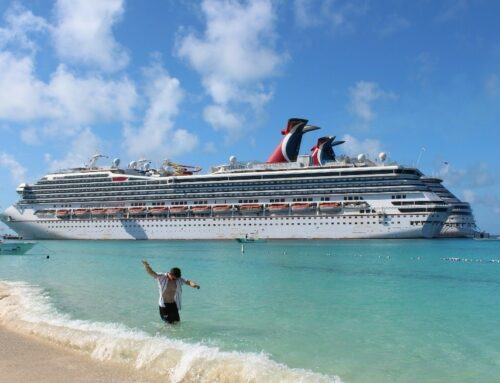The Baltimore Bridge Collapse : How the Ancient Laws of the Sea Endure to this Day
 The ancient field of maritime law recently found itself at the forefront of a modern-day drama involving billions of dollars, a crashed cargo ship, and a nearly fifty-year-old bridge now lying in ruins. In the wake of the Baltimore’s Francis Scott Key Bridge collapse after a massive cargo ship collided into it last week, the world’s eyes have turned to maritime law for guidance on how this should be addressed. Maritime law, a discipline as old as the sea trade itself, is steeped in practices and precedents set by ancient civilizations. Tracing back to the Phoenicians and Greeks, these laws have governed millennia of seafaring tradition and conflict resolution. This enduring legal framework has evolved over centuries, adapting to the complexities of global trade, but still retains its core principles and ruggedly archaic charm.
The ancient field of maritime law recently found itself at the forefront of a modern-day drama involving billions of dollars, a crashed cargo ship, and a nearly fifty-year-old bridge now lying in ruins. In the wake of the Baltimore’s Francis Scott Key Bridge collapse after a massive cargo ship collided into it last week, the world’s eyes have turned to maritime law for guidance on how this should be addressed. Maritime law, a discipline as old as the sea trade itself, is steeped in practices and precedents set by ancient civilizations. Tracing back to the Phoenicians and Greeks, these laws have governed millennia of seafaring tradition and conflict resolution. This enduring legal framework has evolved over centuries, adapting to the complexities of global trade, but still retains its core principles and ruggedly archaic charm.
At the heart of the Baltimore incident is the principle of general average, a concept as old as the trade winds themselves. Originating from the island of Rhodes around 1000 BC, this rule was devised to solve a critical dilemma: how to equitably distribute losses when cargo had to be sacrificed to save a ship. This ancient wisdom decreed that all merchants on a voyage should share the burden of losses, a principle that resonates in today’s global shipping practices.
The Baltimore bridge disaster may also see the application of the Limitation of Liability Act of 1851, a law that once allowed the TITANIC’s owners to significantly limit their financial liabilities following the infamous 1912 sinking. Initially designed to protect U.S. maritime competitiveness, this law could potentially caps the financial repercussions for the ship’s owners, demonstrating the enduring influence of maritime law on modern litigation.
Furthermore, the Robins Dry Dock v. Flint case of 1927 introduces a distinct “boundary” in maritime claims, distinguishing between direct physical damages and economic losses. This precedent could significantly influence the compensation landscape for businesses affected by the collapse, delineating recoverable damages in a manner that may seem counterintuitive to the uninitiated.
The application of maritime law in the aftermath of such a modern catastrophe underscores the timeless nature of sea trade and its disputes. Far from being a relic, maritime law continues to play a pivotal role in governing the complex dynamics of global shipping and commerce. Its principles, honed over thousands of years, still serve as the bedrock for resolving disputes in a world vastly different from that of its ancient creators.
As we sift through the debris of the Francis Scott Key Bridge, it’s clear that the legal aftermath will be a journey back in time. Lawyers, legislators, and business owners will delve into the annals of maritime history, applying age-old wisdom to a 21st-century disaster. In doing so, they not only navigate the intricate web of liabilities and compensations, but also pay homage to the enduring legacy of maritime law.
This blending of past and present, of ancient norms and contemporary challenges, serves as a vivid reminder of the unbroken thread that maritime law weaves through the tapestry of human endeavor. As the world watches the unfolding legal saga in Baltimore, it becomes apparent that maritime law, with its antiquated yet adaptable tenets, remains as relevant as ever.
We at the Herd Law Firm are proud to fight for seamen, maritime workers and passengers in all types of personal injury claims. As Houston maritime attorneys, we never waver in our commitment to help these maritime workers and their families when they are injured.
4/1/2024
Image Credit: Reuters










